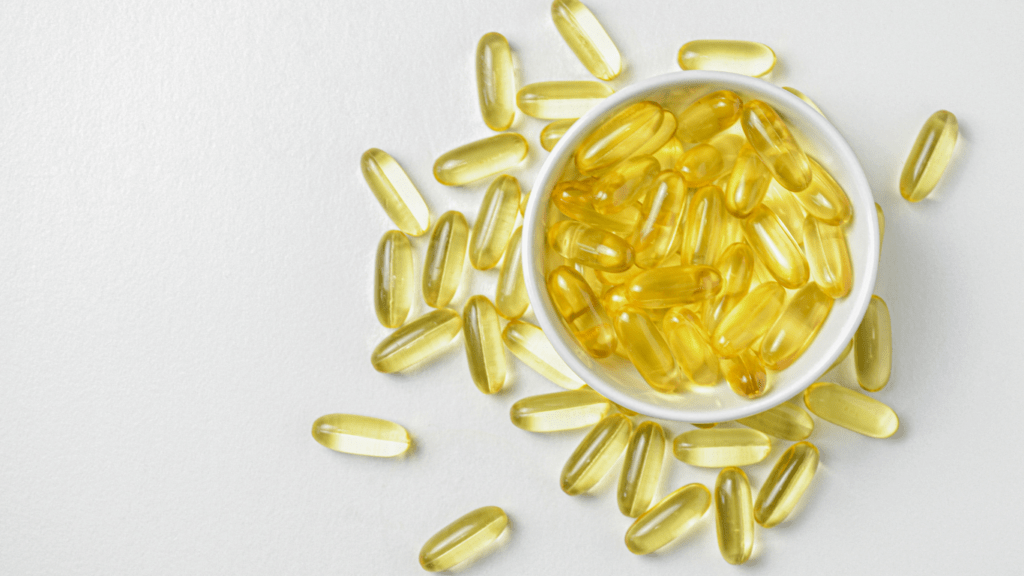Navigating the complex landscape of mental health can be a challenging journey for many individuals. As someone who has delved into the intricate connection between nutrition, supplements, and mental well-being, I’ve witnessed firsthand the profound impact that proper diet and targeted supplements can have on one’s mental health. In today’s fast-paced world, where stress and anxiety seem to be constant companions, understanding the role of nutrition and supplements in supporting mental health is more crucial than ever.
In this article, I’ll explore the symbiotic relationship between what we consume and how we feel, shedding light on the science-backed benefits of incorporating specific nutrients and supplements into our daily routines. From mood-boosting foods to essential vitamins that support cognitive function, I’ll delve into actionable insights that can empower you to take proactive steps towards enhancing your mental well-being through the power of nutrition and supplements.
Exploring the Relationship Between Nutrition and Mental Health
When it comes to mental health, nutrition plays a crucial role in maintaining a balanced state of mind. As I delve into the intricate connection between what we eat and how we feel, it becomes evident that the food we consume directly impacts our mental well-being. By incorporating specific nutrients and supplements into my daily diet, I’ve experienced firsthand the positive effects they can have on my mood and cognitive function.
Focusing on a diet rich in essential nutrients such as Omega-3 fatty acids, vitamins D and B, and minerals like zinc and magnesium, I’ve noticed improvements in my overall mental clarity and emotional resilience. These nutrients are not only vital for physical health but also play a significant role in regulating mood and managing stress levels.
In addition to a nutrient-dense diet, supplements can provide an extra boost to support mental health. I’ve found that incorporating supplements like fish oil, probiotics, and herbal remedies such as ashwagandha and St. John’s Wort has helped me maintain a sense of balance and calm in times of heightened stress or anxiety. These supplements act as valuable tools in my mental health toolkit, complementing my efforts to prioritize nutrition in support of a healthy mind.
By understanding the relationship between nutrition and mental health, I’ve empowered myself to make informed choices that positively impact my well-being. Incorporating a variety of nutrients and supplements into my daily routine has been a game-changer in enhancing my mental resilience and overall quality of life. It’s remarkable how simple changes in my diet and supplement intake can make a profound difference in how I feel both mentally and emotionally.
Key Nutrients that Impact Mental Wellbeing
In understanding the impact of nutrition and supplements on mental health, certain key nutrients play a vital role in promoting overall mental wellbeing. Let’s delve into the specifics of how Omega-3 fatty acids and Vitamin D contribute to mental clarity and emotional resilience.
- Omega-3 Fatty Acids: A Vital Nutrient for Brain Health
As someone advocating for mental health through nutrition, I can attest to the importance of Omega-3 fatty acids in supporting brain health. These essential fats are crucial for proper brain function and have been linked to reducing inflammation in the brain, promoting healthy neurotransmitter function, and enhancing cognitive performance. - Vitamin D: Its Influence on Mood and Cognitive Function
In my experience, I have seen the profound impact Vitamin D can have on mood and cognitive function. Adequate levels of Vitamin D are essential for regulating mood, warding off depression, and supporting cognitive processes. Exposure to sunlight and supplementation can help maintain optimal Vitamin D levels for improved mental wellbeing.
The Impact of Gut Health on Mental Wellbeing
The gut-brain connection is crucial for understanding the link between gut health and mental wellbeing. I’ll delve into how our gut health affects our mental health and overall well-being.
Gut-Brain Connection: Understanding the Link
Maintaining a healthy gut is essential as it directly influences our mental state. Research has shown that the gut and brain communicate bidirectionally through various pathways such as the nervous system, immune system, and the gut microbiota. Imbalances in the gut microbiota, known as dysbiosis, have been linked to conditions like anxiety, depression, and even neurodegenerative diseases. By optimizing gut health through a balanced diet and probiotic supplements, we can positively impact our mental health.
The Role of Supplements in Supporting Mental Health
Exploring the realm of supplements in supporting mental health is crucial for a holistic approach to well-being. When considering supplements, it’s essential to recognize their potential benefits in enhancing mental health alongside a balanced diet.
Vitamins and minerals play a vital role in brain function and emotional well-being. For instance, Vitamin D is known to regulate mood and may support cognitive function. Incorporating Vitamin D supplements, especially in regions with limited sunlight exposure, can be beneficial for maintaining optimal mental health.
Probiotic supplements are also gaining attention for their impact on mental well-being through gut-brain communication. By promoting a healthy balance of gut microbiota, probiotics can potentially alleviate symptoms of anxiety and depression. Including probiotic-rich foods or supplements in your daily routine can contribute to a healthier gut and, subsequently, improved mental health.
While a well-rounded diet serves as the foundation for mental well-being, supplements can act as valuable additions to support overall mental health. It’s essential to consult healthcare professionals before incorporating any new supplements into your regimen to ensure they align with your specific needs and complement your existing nutritional intake.


